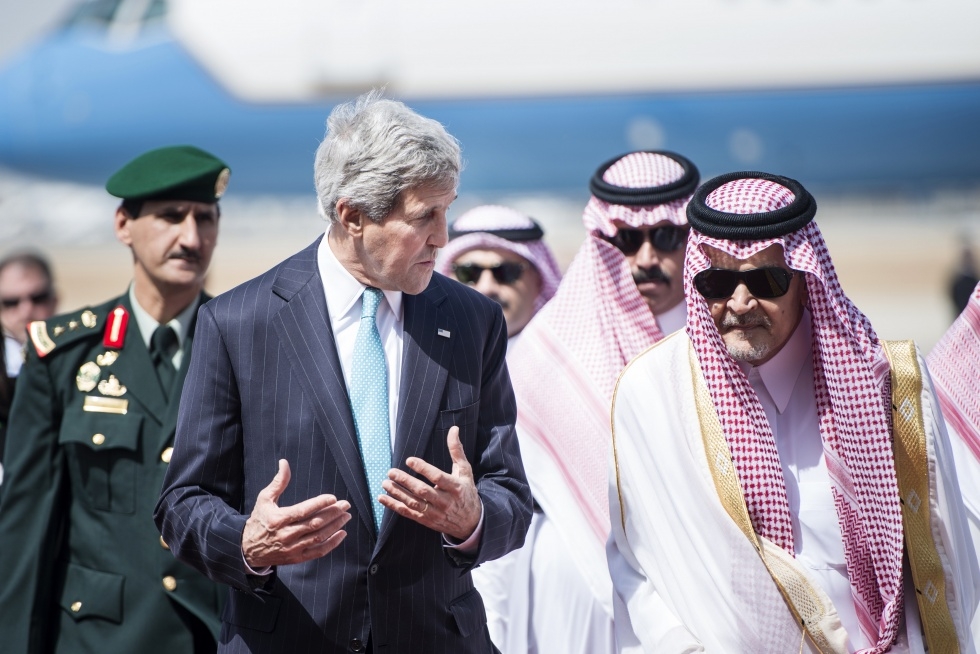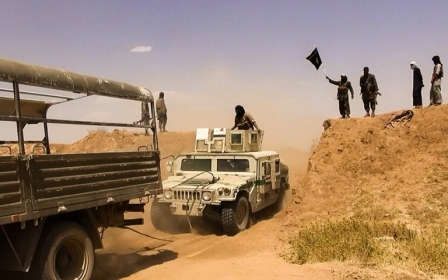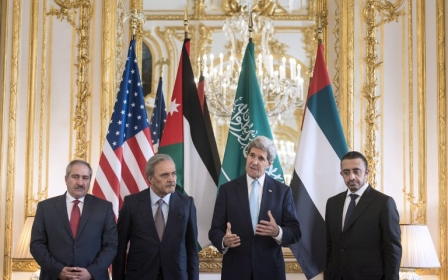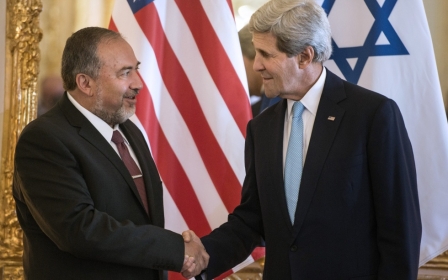Kerry: Syrian opposition 'very important' in settling Iraq unrest

“Moderate” opposition forces in Syria have the potential to play a key role in repelling the insurgency across the border in Iraq, US Secretary of State John Kerry said on Friday.
During a brief visit to the port city of Jeddah in Saudi Arabia, publicised on the US embassy’s Instagram account, Kerry met with King Abdullah as well as Syrian politician Ahmed Jarba who leads the opposition Syrian National Coalition.
Jarba criticised Iraq’s current administration, saying that “sectarian leaders rule the country, so we have to have greater efforts on the part of the US and regional powers to address the situation.”
Kerry, for his part, played up the tribal nature of the conflict and Jarba’s position as a key player in the region. Both Syria and Iraq have come under threat from militant groups including the Islamic State in Iraq and the Levant (ISIL) which have managed to seize vast swaths of territory.
Kerry said that "the moderate opposition in Syria...has the ability to be a very important player in pushing back against ISIL’s presence...not just in Syria, but also in Iraq.”
"Jarba represents a tribe that reaches right into Iraq. He knows people there, and his point of view and that of the Syrian opposition will be very important going forward," he added.
Kerry’s visit on Friday comes a day after the White House asked lawmakers to sign off on $500m to train and equip vetted Syrian rebels.
The request is part of a $1.5bn Regional Stabilisation Initiative to bolster stability in the five regional states - Syria, Iraq, Jordan, Lebanon and Turkey - and to support communities hosting refugees.
Saudi's King Abdullah has consistently called for greater US military support for the Syrian rebels, whom the Sunni Gulf kingdom has long backed.
Ahmad Jarba welcomed the huge US boost to his forces, who are battling to oust Syrian President Bashar al-Assad.
Heavy weapons fears
Riyadh has recently accused Iraqi Prime Minister Nuri al-Maliki of excluding Iraq's Sunni Arab minority, and has played down Western concerns that the insurgents are led by jihadists.
Although the United States has provided some $2bn in humanitarian aid, Obama has so far shied clear of providing heavy weapons, fearful that they could fall into the hands of certain militants.
Jarba visited Washington in May to plead for arms, especially anti-aircraft missiles, to help the rebels defend themselves against air strikes and barrel bomb attacks by Assad's regime.
About $287m in mainly non-lethal support has been cleared for the rebels since March 2011, and the CIA has participated in a secret military training programme for those it considers the moderate opposition in neighbouring Jordan.
Washington has been increasingly concerned that the militants’ presence on both sides of the Iraq-Syria border will play into the hands of the Assad government.
Those fears were highlighted on Thursday when Maliki "welcomed" Syrian government air strikes against the militants now in control of both sides of the al-Qaim border crossing between Iraq and Syria.
Washington, however, responded that military action by Assad's government would not be "in any way helpful to Iraq's security".
US officials say Washington is calling on its Sunni allies in the region, such as Saudi Arabia, to use their influence with Iraqi leaders to unite and quickly form a government, on the heels of April elections.
The United States has also urged Arab nations to work to stop the flow of funds and recruits joining the militant ranks in the region.
King Abdullah on Thursday ordered authorities in the oil-rich kingdom to take "necessary measures" to defend the country from any spill-over from Iraq’s current unrest.
Middle East Eye propose une couverture et une analyse indépendantes et incomparables du Moyen-Orient, de l’Afrique du Nord et d’autres régions du monde. Pour en savoir plus sur la reprise de ce contenu et les frais qui s’appliquent, veuillez remplir ce formulaire [en anglais]. Pour en savoir plus sur MEE, cliquez ici [en anglais].




